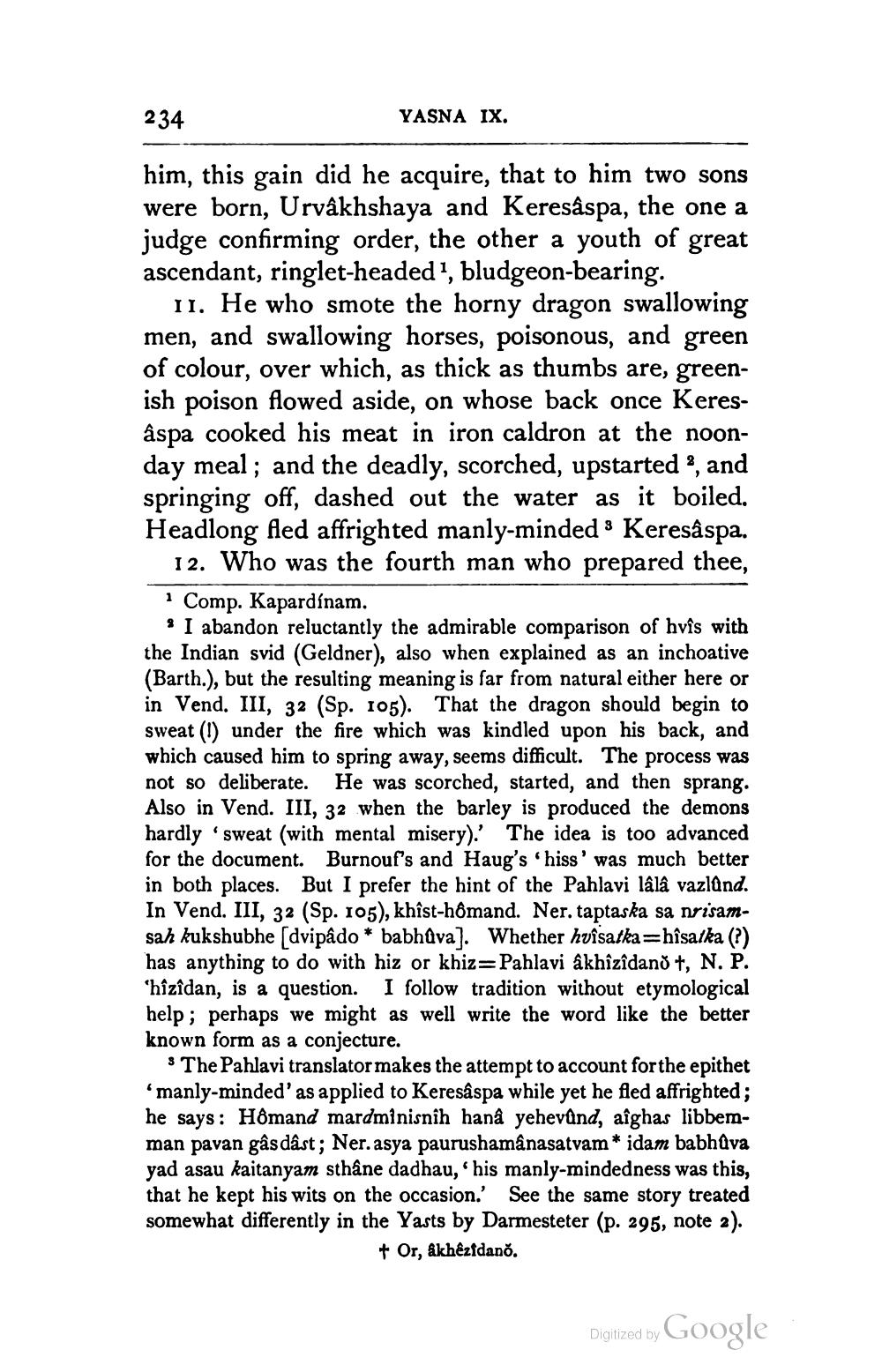________________
234
YASNA IX.
him, this gain did he acquire, that to him two sons were born, Urvâkhshaya and Keresâspa, the one a judge confirming order, the other a youth of great ascendant, ringlet-headed ?, bludgeon-bearing.
11. He who smote the horny dragon swallowing men, and swallowing horses, poisonous, and green of colour, over which, as thick as thumbs are, greenish poison flowed aside, on whose back once Keresâspa cooked his meat in iron caldron at the noonday meal; and the deadly, scorched, upstarted ?, and springing off, dashed out the water as it boiled. Headlong fed affrighted manly-minded : Keresâspa.
12. Who was the fourth man who prepared thee, 1 Comp. Kapardínam.
I abandon reluctantly the admirable comparison of hvis with the Indian svid (Geldner), also when explained as an inchoative (Barth.), but the resulting meaning is far from natural either here or in Vend. III, 32 (Sp. 105). That the dragon should begin to sweat (1) under the fire which was kindled upon his back, and which caused him to spring away, seems difficult. The process was not so deliberate. He was scorched, started, and then sprang. Also in Vend. III, 32 when the barley is produced the demons hardly 'sweat (with mental misery).' The idea is too advanced for the document. Burnouf's and Haug's 'hiss' was much better in both places. But I prefer the hint of the Pahlavi lâlâ vazlând. In Vend. III, 32 (Sp. 105), khîst-hômand. Ner. taptaska sa nisamsah kukshubhe [dvipâdo * babhava). Whether hvîsatka=hîsalka (0) has anything to do with hiz or khiz=Pahlavi akhîzîdano t, N. P. 'hîzîdan, is a question. I follow tradition without etymological help; perhaps we might as well write the word like the better known form as a conjecture.
The Pahlavi translator makes the attempt to account forthe epithet "manly-minded' as applied to Keresâspa while yet he fled affrighted; he says: Hômand mardminisnih hana yehevůnd, aîghas libbemman pavan gâsdást; Ner.asya paurushamanasatvam * idam babháva yad asau kaitanyam sthâne dadhau, his manly-mindedness was this, that he kept his wits on the occasion. See the same story treated somewhat differently in the Yasts by Darmesteter (p. 295, note 2).
+ Or, åkhêzfdano.
Digitized by
Digitized by Google




